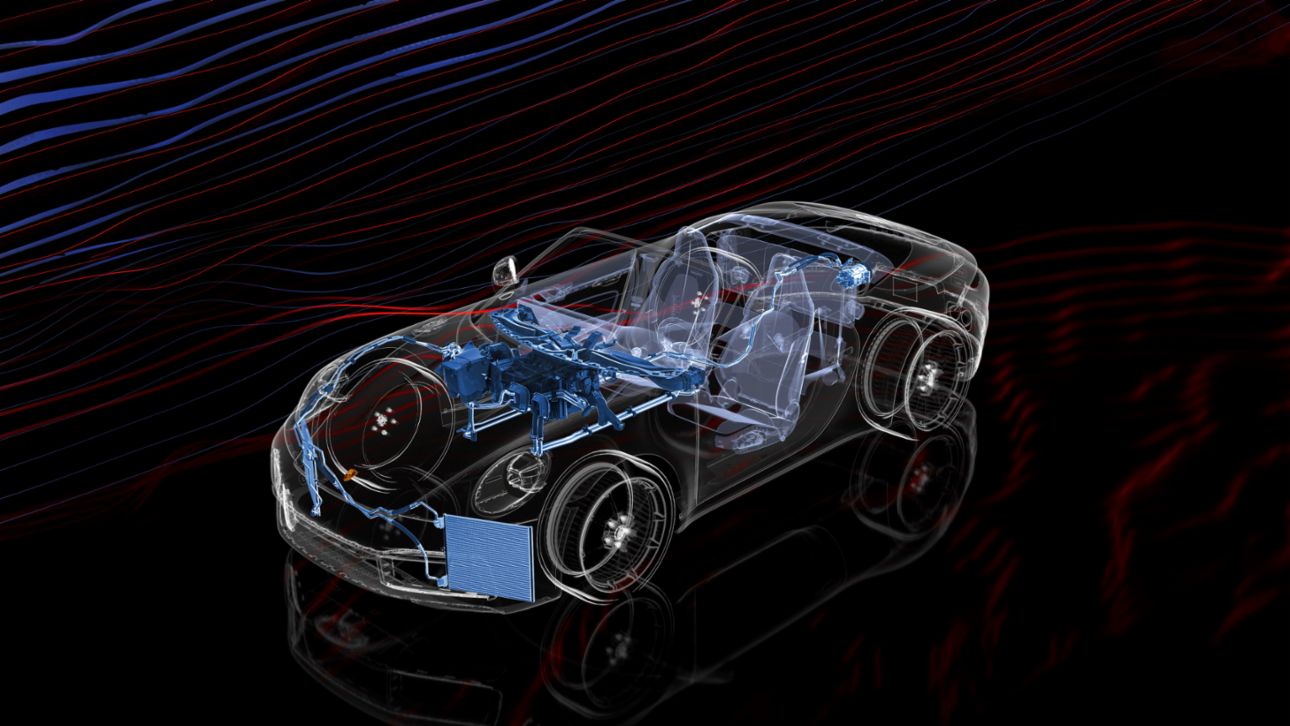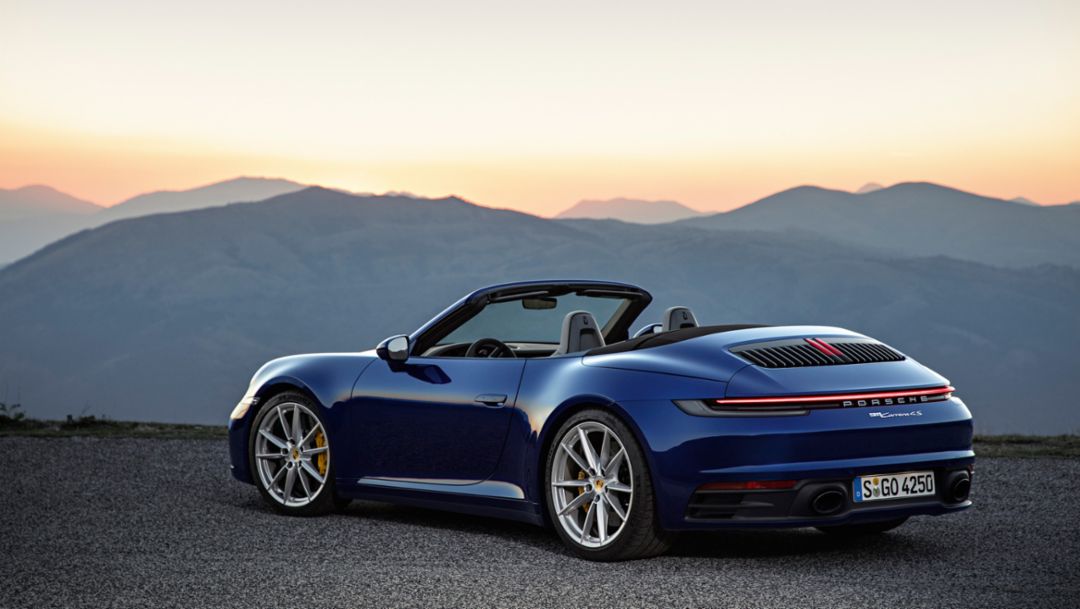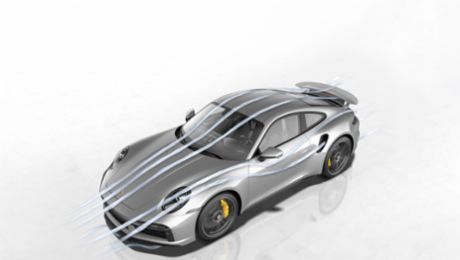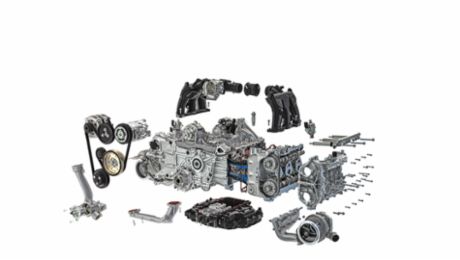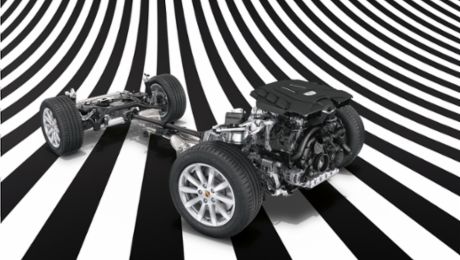Porsche engineers have intelligently refined it once again for the latest generation of Porsche 911 Cabriolets. The challenge: while the interior temperature sensor is a central control variable in a closed vehicle, many additional influences are added when driving in the open air. This is why the new cabriolet control system slowly suppresses this sensor as the soft-top is opened. The complex automatic climate control system now processes around 350 signals in half-second intervals in coordination with twenty external and twenty internal interfaces. Sensors continuously record parameters, such as outlet, outside, and coolant temperatures as well as engine speed, insolation, and vehicle speed. The interfaces relevant to the climate control unit include the control units for the engine, soft-top, doors, and seats. The climate control system uses this data stream to continuously calculate the optimum air temperature, air outlet volume, and air distribution in the open-top interior.
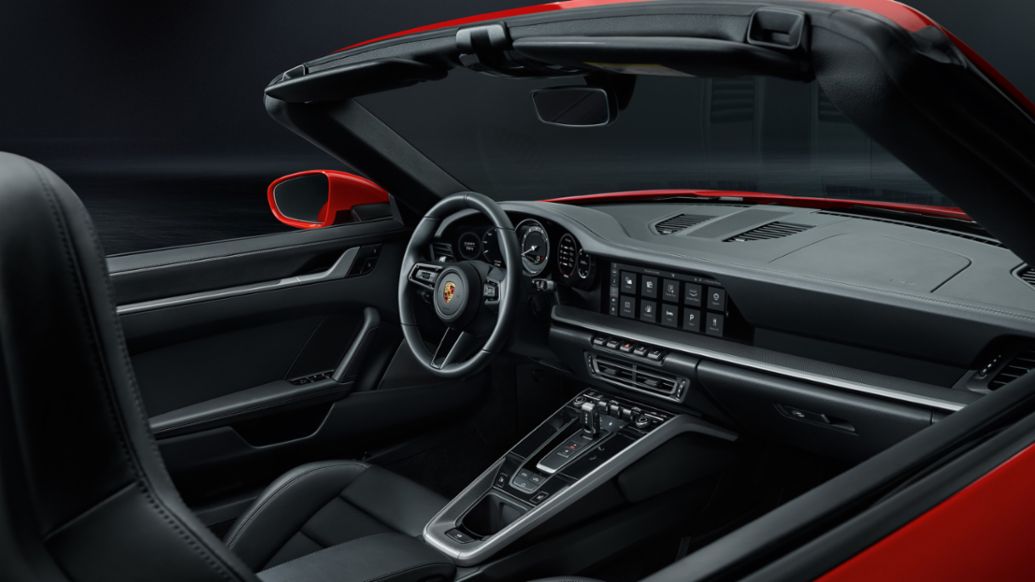
This clever convertible control is particularly noticeable at low speeds. Even in the searing summer heat of the city, 911 Cabriolet drivers are surrounded by a pleasant freshness. During top-down excursions in the winter, the Porsche system overrides the conventional comfort formula of “warm feet, cool head.” Instead, the automatic climate control system distributes more warm air via the center air vents for the driver and front passenger. The result: occupants enjoy a cozy veil of heat without having the unpleasant sensation of air being blown in their faces. Blissfully warm hands on the steering wheel; heavy winter jackets head for the luggage compartment. In changing weather conditions, common in spring or fall, the automatic climate control reacts to practically every cloud in the sky with a control adjustment. And it does all of this without any manual intervention. What’s left for the occupants to do? Just to remember their sunscreen and sunglasses and, if it rains, to close the top—and enjoy the drive.
Info
Text first published in the Porsche customer magazine Christophorus, No. 395.
Illustration: design hoch drei, Porsche Engineering
